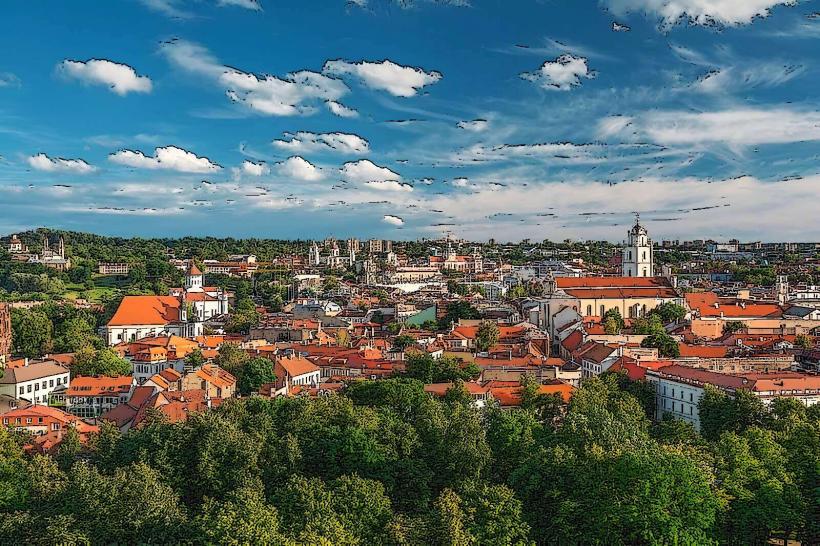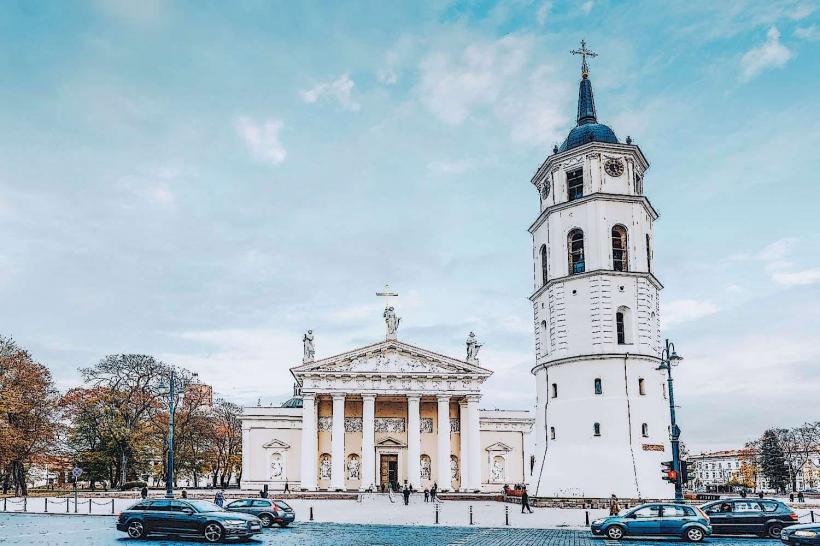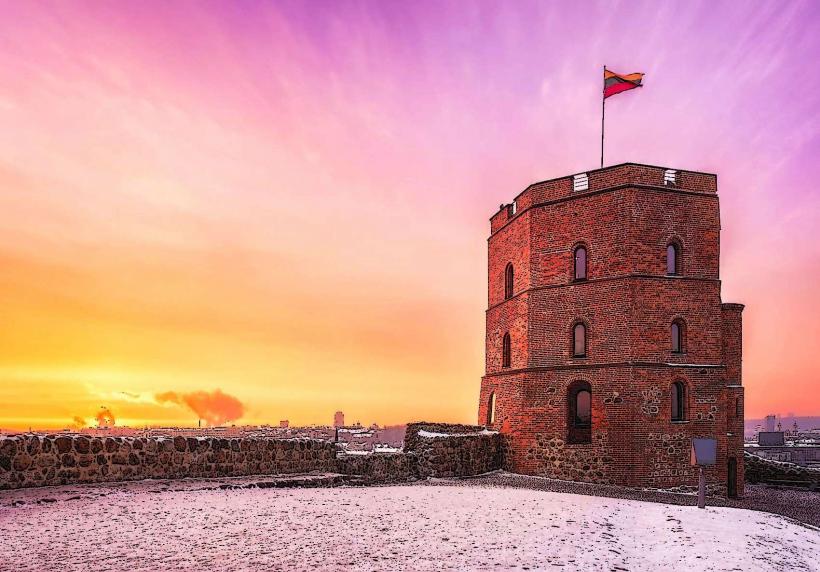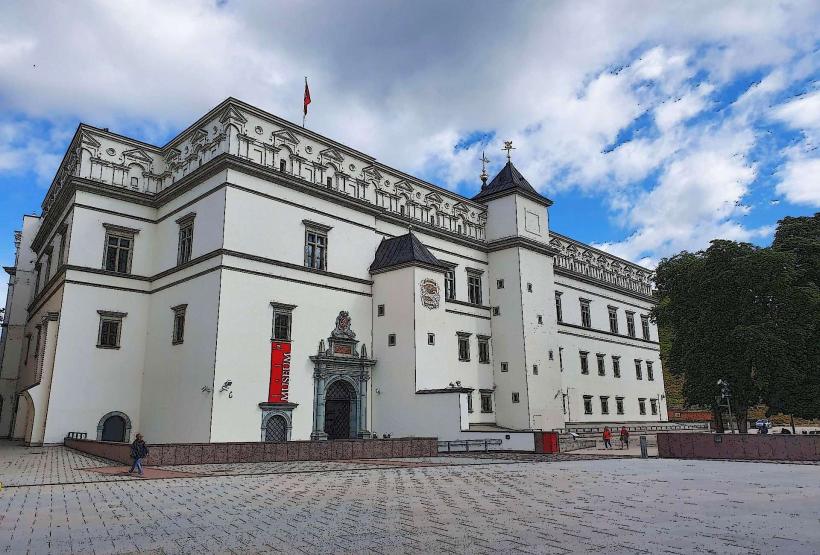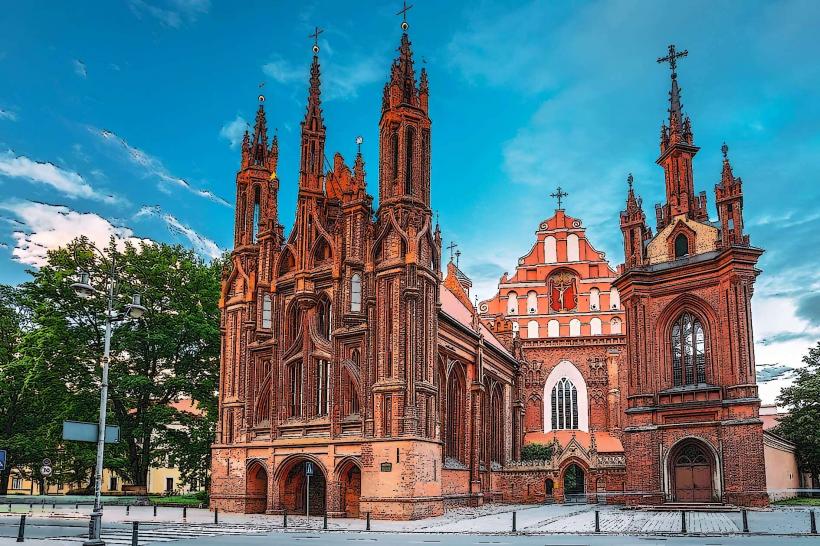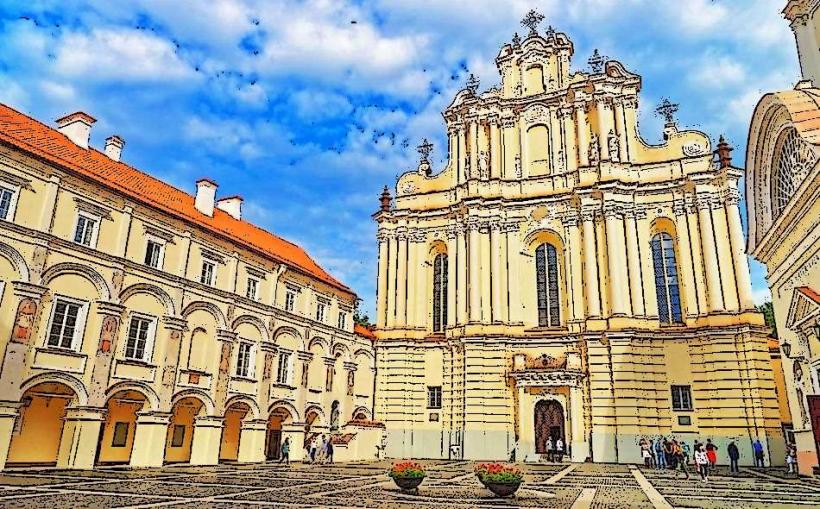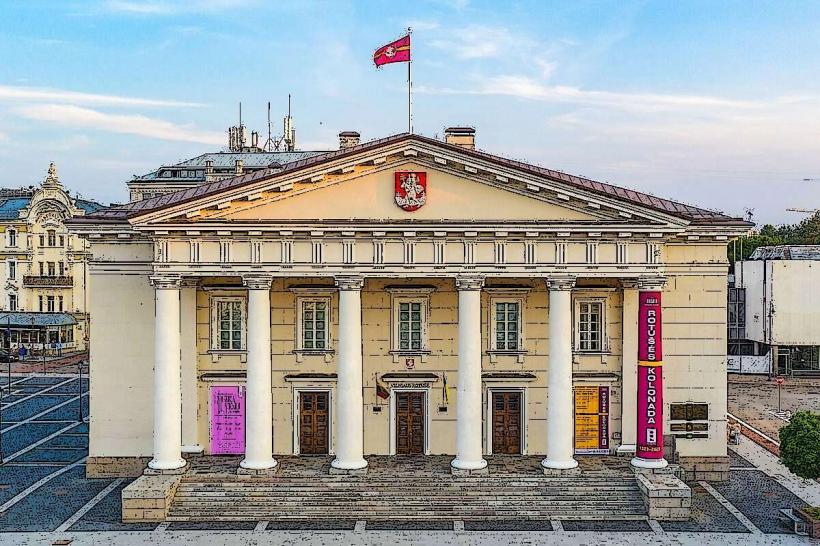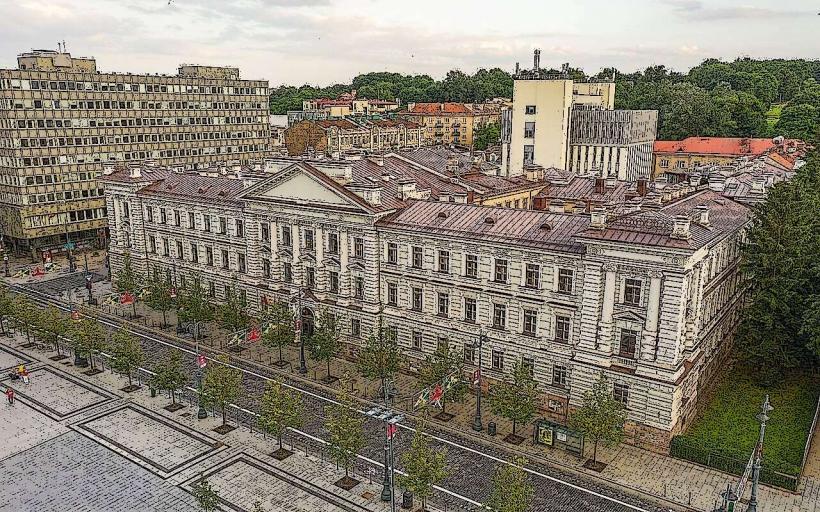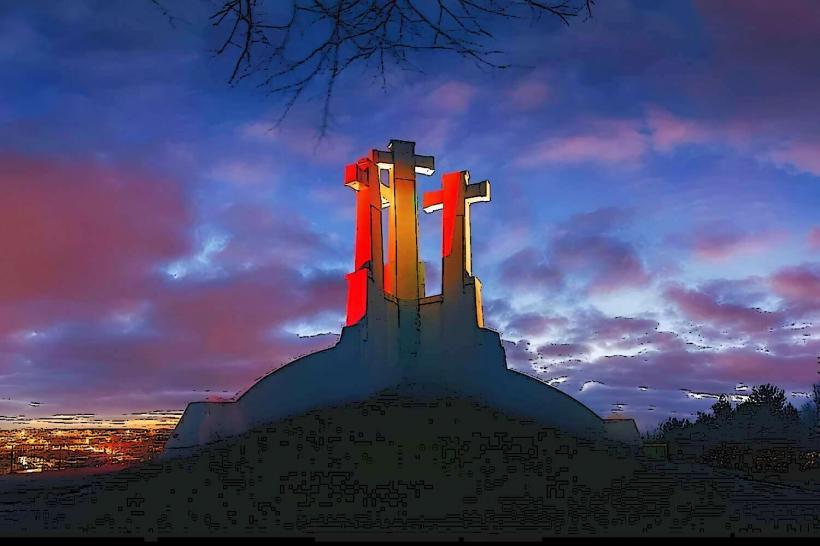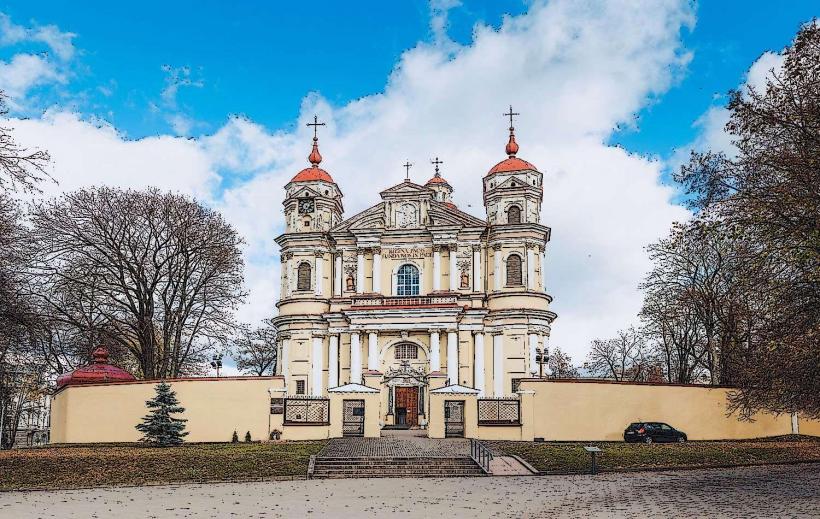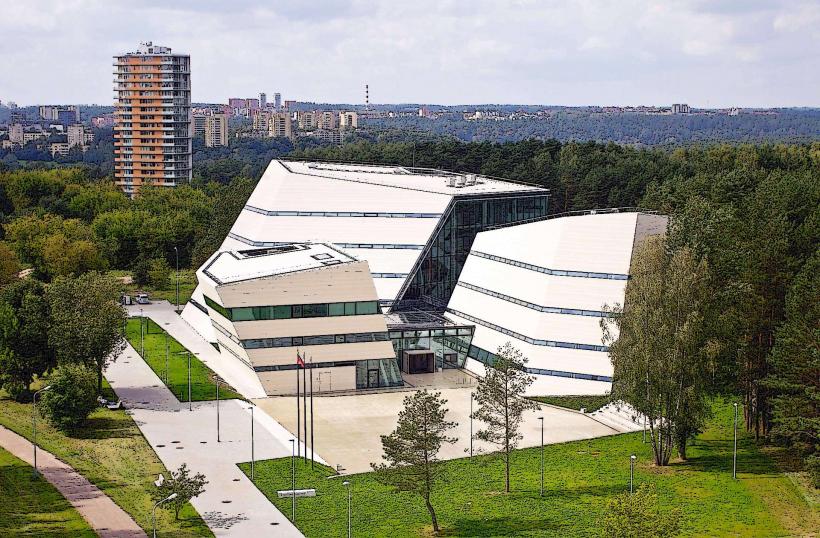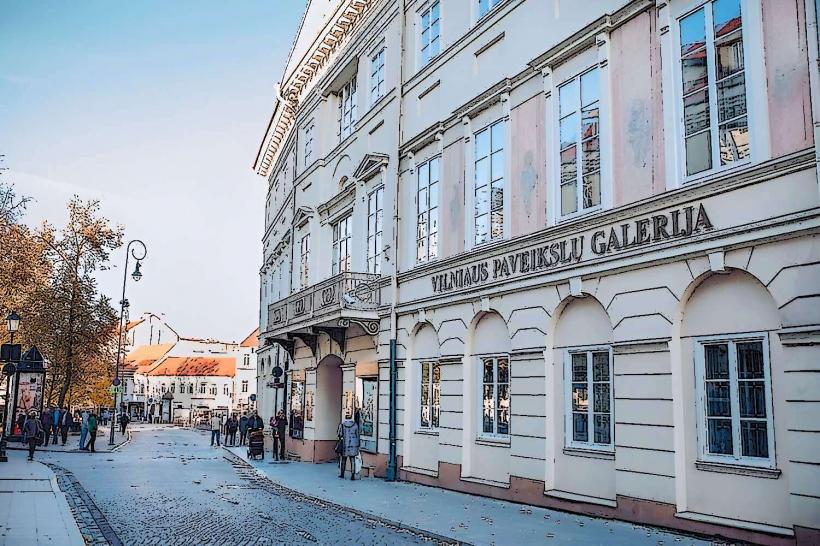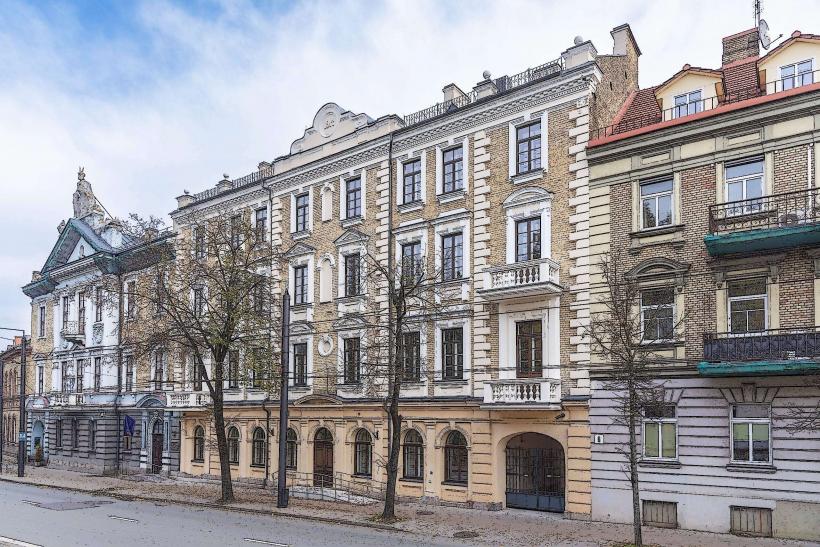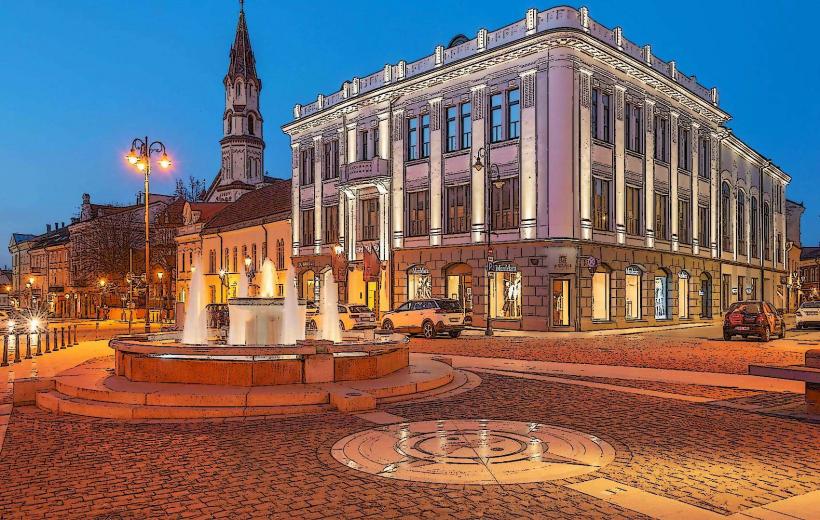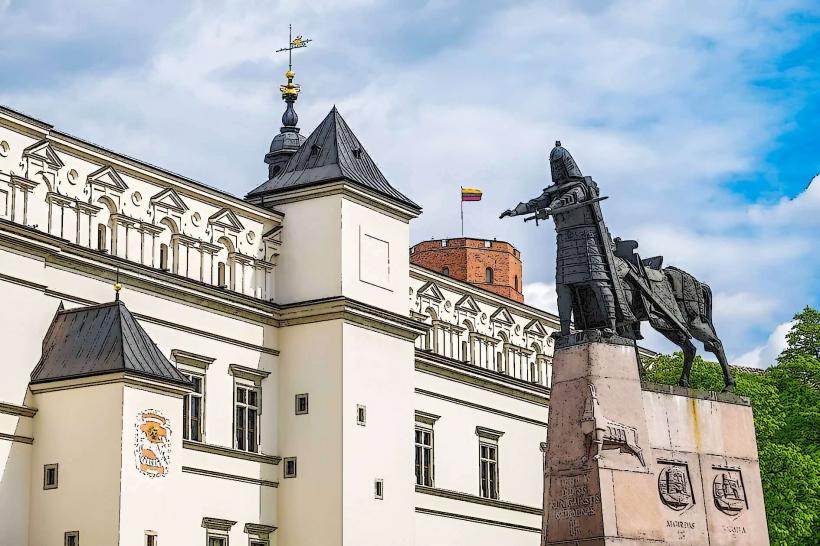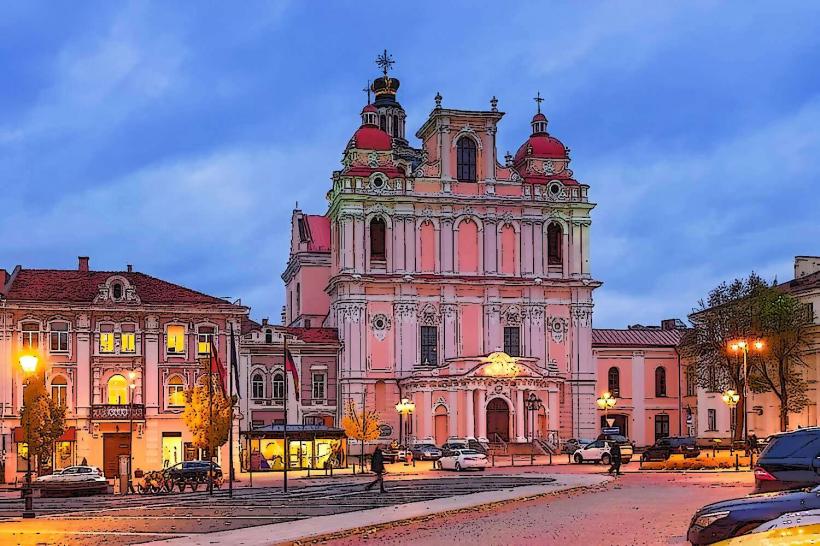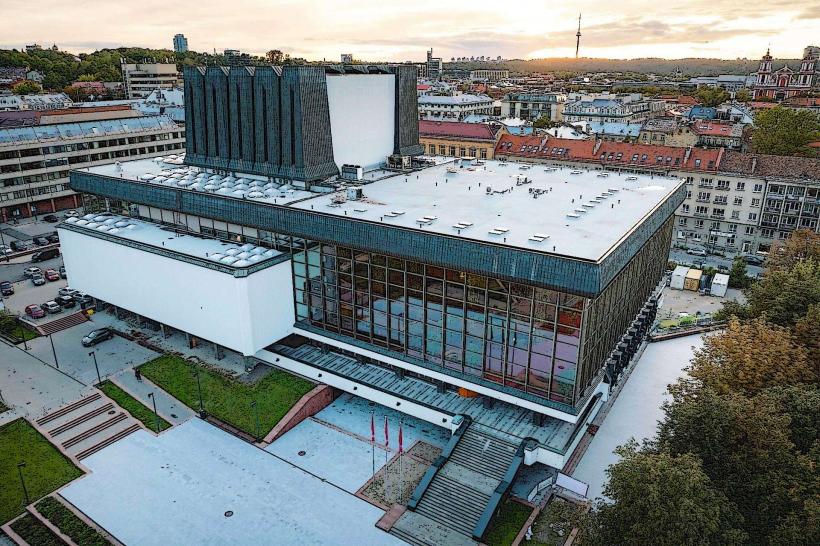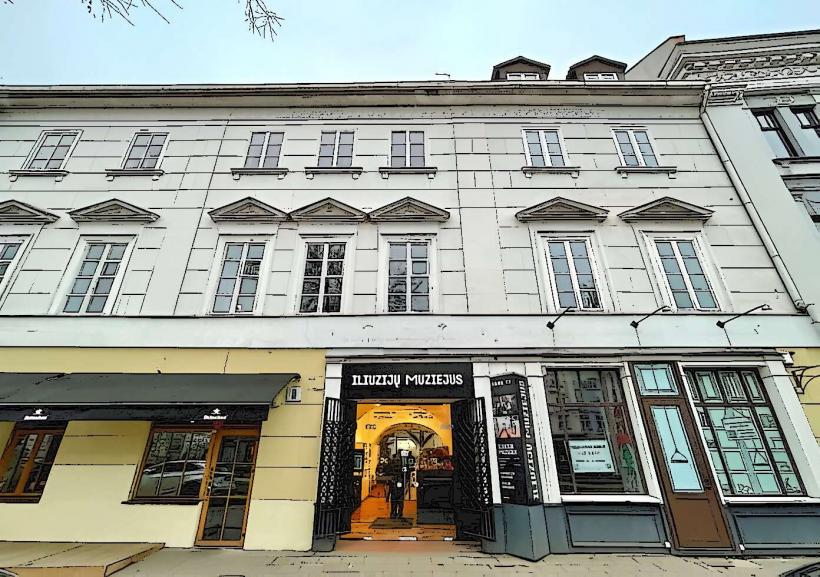Information
Landmark: Gates of DawnCity: Vilnius
Country: Lithuania
Continent: Europe
Gates of Dawn (Aušros Vartai)
The Gates of Dawn (Lithuanian: Aušros Vartai) is one of the most important and iconic landmarks in Vilnius, Lithuania, and is a symbol of both the city's rich history and its deep Catholic heritage. Located in the Vilnius Old Town, it is one of the few remaining city gates from the medieval fortifications that once surrounded the city.
Historical Background
Construction: The Gates of Dawn were built in the early 16th century as part of the city's defensive walls, which were intended to protect Vilnius from external threats. The gate was constructed during the reign of Grand Duke of Lithuania, Sigismund I (also known as Sigismund the Old), at a time when the city was expanding and fortifications were a necessity.
Defensive Role: Originally, the gate was one of several gates in the city's defensive wall, which was designed to protect Vilnius from attacks. Over time, as the city grew and its fortifications became less important, most of the gates were demolished, leaving the Gates of Dawn as one of the few that remained.
Religious Significance: The Gates of Dawn gained additional significance when a chapel was established on the upper floor in the 17th century, containing a revered image of the Virgin Mary, known as the Our Lady of the Gate of Dawn (Aušros Vartų Dievo Motina). This image became one of the most important religious icons in Lithuania and is considered a symbol of protection and hope.
Architectural Features
Structure: The Gates of Dawn are a combination of both a fortified gate and a religious chapel. The gate consists of a single archway, flanked by two buildings. The lower part served as the entry point into the city, while the upper part houses the chapel dedicated to the Virgin Mary.
Baroque Chapel: The chapel at the Gates of Dawn was constructed in the 17th century in the Baroque style. It is known for its ornate interior, which includes an altar, columns, and intricate stucco work. The highlight of the chapel is the icon of the Virgin Mary, a 16th-century painting that has been venerated for centuries and has become a pilgrimage site for Catholics in Lithuania and beyond.
Icon of Our Lady of the Gate of Dawn: The image of the Virgin Mary housed in the chapel is one of the most famous and revered religious icons in Lithuania. The image is believed to have miraculous powers, and it has been credited with protecting the city of Vilnius from invasions, fires, and other disasters. Pilgrims from across Lithuania and even from other countries travel to see this icon, making the Gates of Dawn a major pilgrimage site.
Cultural and Religious Importance
Symbol of Catholicism: The Gates of Dawn and the Our Lady of the Gate of Dawn icon are key symbols of Catholic faith in Lithuania, a country with a long history of Catholicism. The shrine has become a focal point for religious life in Vilnius, and the image is often associated with the nation's struggles for independence and its resilience through turbulent periods in history.
Pilgrimage Site: The Gates of Dawn has been a major site of pilgrimage for Catholics in Lithuania and abroad. The icon of the Virgin Mary has been regarded as a symbol of hope, protection, and mercy, and many believers attribute miracles and divine intervention to the image. Pilgrims visit the site regularly, especially on feast days and other important religious occasions.
Historical Role in Lithuanian Independence: The Gates of Dawn also hold political significance for Lithuania. During the Soviet occupation, the icon and the chapel became symbols of resistance and national pride. It was a place where Lithuanians could gather in defiance of the Soviet regime, and the icon itself became a symbol of Lithuanian independence and the national identity that endured despite foreign occupation.
Tourism and Popularity
Visitor Attraction: The Gates of Dawn is one of the most visited landmarks in Vilnius. Tourists from around the world come to admire its historical and architectural beauty, as well as to experience its religious significance. The site is especially popular with Catholics who view it as a place of spiritual reflection and prayer.
Cultural Heritage: The Gates of Dawn is also recognized as a key piece of Lithuanian cultural heritage. It is a UNESCO World Heritage-listed site, included as part of the Vilnius Old Town. The gates are an example of how religious, cultural, and historical elements can intertwine in a single landmark.
Special Events: The chapel at the Gates of Dawn hosts regular masses, as well as special religious ceremonies. In addition, the site is often a venue for cultural events, including concerts and exhibitions, which highlight the intersection of religion, art, and culture in Lithuanian history.
Conclusion
The Gates of Dawn stands as a unique and cherished landmark in Vilnius, combining historical, religious, and cultural significance. It is not only a physical gateway into the old city but also a spiritual gateway for millions of people who visit to pay homage to the revered icon of the Virgin Mary. Its combination of Gothic, Renaissance, and Baroque architecture, coupled with its importance as a place of pilgrimage and national symbolism, makes the Gates of Dawn one of Vilnius' most cherished treasures.

